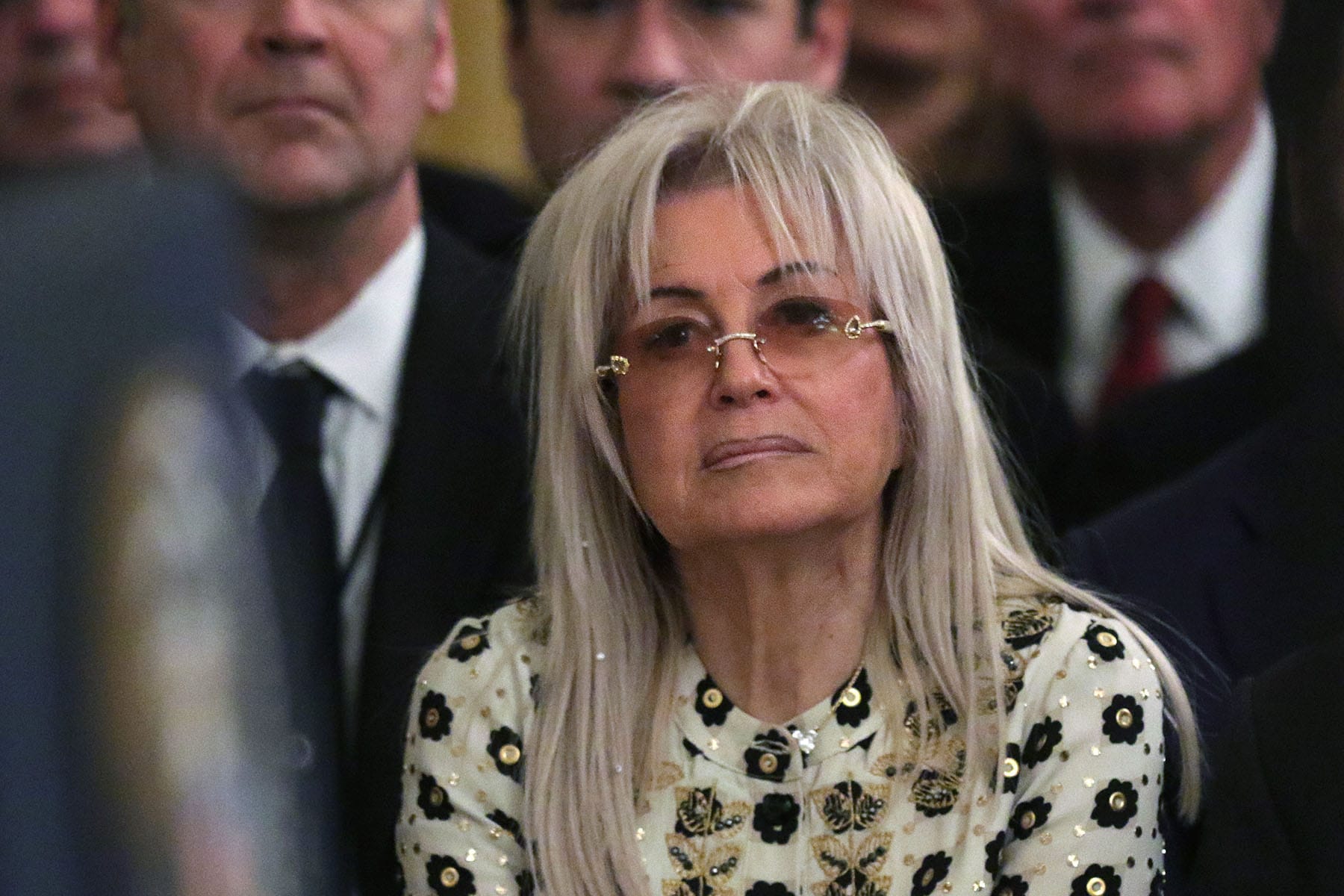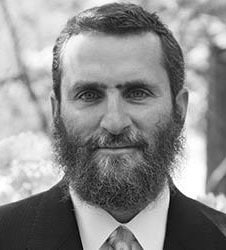 Miriam Adelson (Photo by Alex Wong/Getty Images)
Miriam Adelson (Photo by Alex Wong/Getty Images) For too many, 2020 has been an annus horribilis, filed with pain, disease, and heartbreak. The coronavirus has killed more than a million the world over. It has shut down schools and shuls, restaurants and parks, movie theaters and museums, and made a ghost town of places like mid-town Manhattan. And it’s made us all more paranoid, weary of strangers, afraid to hug our own grandchildren.
But often the darkest times produce the greatest heroes and reveals the latent virtue that dwells within the human heart. As this week celebrates a big birthday for global philanthropist Miriam Adelson, it behooves me to publicly recognize her efforts during the coronavirus.
For years I have born witness to Miriam’s tireless charitable efforts, both as a champion of the Jewish people and as a physician, a healer of hearts numbed by pain and ravaged by addiction. Anyone who has visited Miri’s clinics in Las Vegas and in Tel Aviv – I brought Dr. Oz to see the work of the clinic in Israel – know how intimately she cares for those struggling with terrible dependencies, cast along society’s wayside.
I’ve also seen her cut whole hours from an overflowing schedule to sit with Jewish students fighting for Israel on campus. Once when Miri came to New York for a short overnight stay for a University board meeting, I watched her spend her only few spare hours speaking to a single student BDS fighter, trying to get a handle on how bad the boycott crisis against Israel had grown at American universities. Far from an armchair allocator, Miri is deeply involved in the lives of her patients and the execution of the initiatives she undertakes.
The Zohar compares people to olives. Only when an olive is pressed can we extract its oil. So too, the densest stress can yield our finest moments.
Personally, I have never gravitated to the idea of suffering being redemptive. God is all powerful. Surely, he can find a way to bring out our best with a goodness that’s visible and transparent. But I know also that sometimes, as we buckle under the strain of everyday existence, we glimpse a special side of ourselves and in one another.
It shouldn’t take a civil war to reveal Lincoln’s steely moral core nor a global one to unsheathe Churchill’s herculean struggle against evil. But when calamities do occur, it is examples of such moral mettle — pressed out by the pressure-cookers of crisis — that inspires the rest of us to see our way through the darkness.
During the pandemic I’ve seen a whole new side to Miri’s dedication to humanity. I’ve seen her work day and night to ensure the best possible treatment and medicines make their way to the many strangers who reached out to her in crisis.
With an illness that’s treated on a minute-to-minute basis, it makes a difference that key medications are delivered on time. In a situation where a wrong medical turn can spell disaster for a patient, it’s equally essential for expert-advice to be available to those without an idea of what to do. I’ve witnessed people without access to either of these saved in their hour of need by Miri, working tirelessly to ensure they get both, then inquiring regularly about their condition.
The family of a man on a ventilator approached me about getting Miri’s help with medication. She had no idea who the man was. But that didn’t stop her reaching out for a month to push the medical team on the man’s treatment and ensure he had everything to recover.
Then it became more personal.
My own brother Chaim, older than me by just a year and the sibling with whom I shared a room as a child, got sick with COVID-19 and was hospitalized. Miri sprang into action, calling his doctors daily to ensure he had all the medications necessary. She did not do this because it was the brother of a friend. She had done the same for countless, unnamed others. Thank God my brother recovered. But for the few terrifying days where his prognosis was in doubt, Miri’s constant attention and calm were decisive in giving me and our family comfort and hope.
A fundamental Jewish belief maintains that when God is hidden it’s up to us to stand-in for Him. I have no idea why God is allowing the spread of this awful virus that — with its ugly, pointed spikes — looks as horrible as it feels. What could God be thinking? As if the world were not suffering enough with cancer, heart disease, and diabetes, we needed a global pandemic to make life a misery?
As if the world were not suffering enough with cancer, heart disease, and diabetes, we needed a global pandemic to make life a misery?
In the Torah, God commands the Jewish people to wipe out Amalek. And what is this entity that should be eradicated without trace? An enemy that preys specifically on the elderly and most vulnerable. That is the coronavirus. So why hasn’t God wiped it out?
I wish I could ask Him. I would protest to my Creator that the pandemic is an abomination to his own glory, and that people who love life are being alienated from faith and belief as they see this disgusting disease spread without respite.
But God has not consulted me on the coronavirus. So, all we can do for now is adhere to His commandments to feed the hungry, clothe the naked, heal the sick, and comfort the bereaved. In observing Miri’s incessant efforts to save even the lives of complete strangers one sees the world’s foremost Jewish philanthropist, along with her husband Sheldon, carrying out the highest ideals of ancient Jewish values and tradition.
Nearly a millenia ago Maimonides was generation’s most accomplished practitioner of medicine. He served as the personal physician to Sultan Saladin, one of history’s greatest Muslim conquerors, and published medical guides consulted throughout the world.
Explaining to his friend and translator Rabbi Shmuel Ibn Tibbon, why he wouldn’t have time for a visit, he describes spending hours every day attending to the medical needs of the Sultan, his officers, and the royal family. His real work, however, began when he got home.
“Then I come to my house,” he related, “my foyer is always full of people – Jews and non-Jews, important people and not, judges and policemen, people who love me and people who hate me, a mixture of people, all of whom have been waiting for me to come home.” He asks them for a few minutes to eat “the only meal I take in twenty-four hours. Then I go out to heal them, write them prescriptions and instructions for treating their problems. Patients go in and out until nightfall, and sometimes – I swear to you by the Torah – it is two hours into the night before they are all gone.” He describes having to treat patients “while lying down on my back from exhaustion.” By the time it’s all over, Maimonides explains, “I am so weak, I cannot even talk anymore.”
Miri walks this noble path pioneered by Maimonides for Jewish activist-physicians, giving all of herself to the needs of the community and the infirm. On her special birthday, I salute her.
It’s been a tough year for me personally, beginning with the loss of my father in Los Angeles and continuing through the agony of my brother’s illness but ending, thank God, in the triumph of his recovery, the birth of a grandchild named after my father, and the wedding of our daughter Rochel Leah, God willing this week. I owe a giant thank you to the heroes like Miri – and the other physicians and first responders – who are getting us through a time of crisis like no other.
Rabbi Shmuley Boteach is the author of “Judaism for Everyone” and “Renewal: The Seven Central Values of the Jewish Faith.” Follow him on Twitter and Instagram @RabbiShmuley.























 More news and opinions than at a Shabbat dinner, right in your inbox.
More news and opinions than at a Shabbat dinner, right in your inbox.